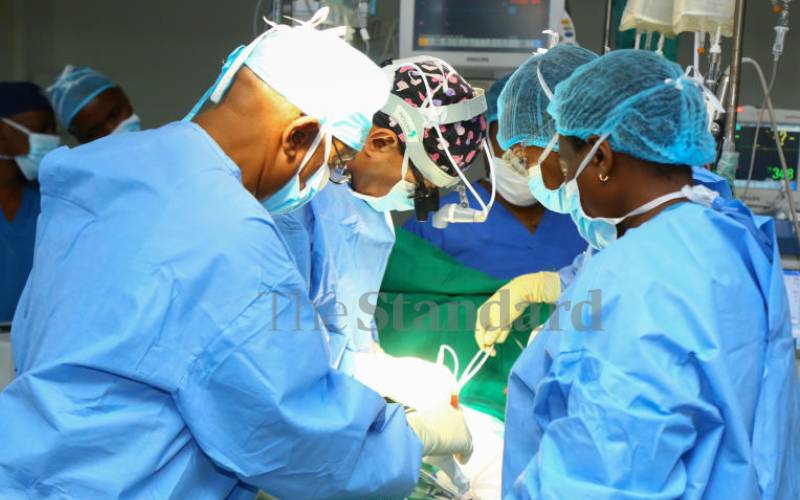×
The Standard e-Paper
Kenya’s Boldest Voice

A team of doctors led by Dr Premanand Ponoth performing open heart surgery at the Karen Hospital. July 2017. [Willis Awandu, Standard]
I happened to visit Cedar Crest Hospital in Abuja, Nigeria along with a team from Karen Hospital, last month. We were to start a cardiology and cardiothoracic programme in this region of Africa’s most populous nation.